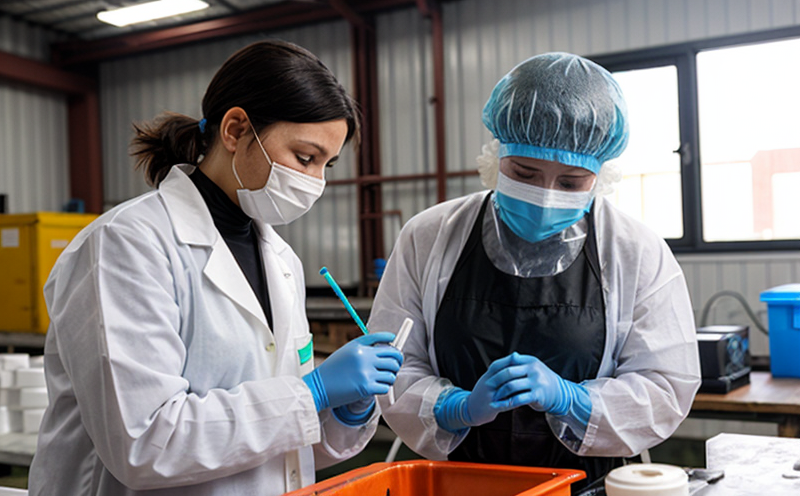ISO 15105 Gas Permeability of Recycled Packaging Films Containing Nanoparticles
The ISO 15105 standard provides a comprehensive framework for measuring the gas permeability of packaging films, which is crucial in ensuring the integrity and performance of packaging materials. This service focuses specifically on recycled packaging films containing nanoparticles, addressing the unique challenges and considerations associated with these materials.
Recycled nanomaterials present an innovative approach to sustainability by reusing waste products while enhancing material properties through the integration of nanoparticles. However, the presence of nanoparticles introduces additional complexity in terms of processing, mechanical properties, and gas permeability. This service ensures that recycled packaging films meet the highest standards for gas barrier performance as required by market demands.
The testing process involves multiple stages, including sample preparation, conditioning, and exposure to controlled environments. The primary goal is to determine how effectively the film blocks gases like oxygen, nitrogen, carbon dioxide, and water vapor under specific conditions. This information is vital for ensuring the shelf life of packaged products and preventing contamination.
The ISO 15105 standard outlines detailed procedures that account for the unique properties of nanocomposite films. It specifies test methods to ensure consistent results across different laboratories, thereby enhancing reliability and comparability. The use of nanoparticles in these films can significantly alter their behavior compared to traditional packaging materials, making accurate measurement essential.
Our team of experts ensures compliance with ISO 15105 by employing advanced equipment and rigorous protocols. We understand the importance of this test for quality managers, procurement officers, and R&D engineers who rely on precise data when selecting or developing new packaging solutions. By leveraging our expertise in nanomaterials testing, we provide accurate and actionable insights that contribute to sustainable practices within your organization.
Through meticulous analysis, we can identify areas where improvements are needed, helping you optimize your recycled packaging films for better performance. Our commitment to quality ensures that every test adheres strictly to international standards, providing confidence in the reliability of our results.
Scope and Methodology
| Parameter | Description |
|---|---|
| Sample Preparation | The film samples are cut into standardized strips, conditioned to specific humidity levels, and exposed to controlled environments. |
| Test Environment | The test is conducted at standard temperature and pressure with precise control over relative humidity. |
| Data Collection | Gas flow rates are measured continuously using mass spectrometry techniques. |
| Parameter | Description |
|---|---|
| Testing Conditions | The test is conducted over a range of temperatures and humidities to simulate real-world conditions. |
| Data Analysis | Results are analyzed according to ISO 15105 guidelines, ensuring accuracy and consistency. |
| Reporting | A detailed report is provided summarizing the findings along with recommendations for improvement if necessary. |
Why Choose This Test
- Evaluation of gas barrier performance in recycled nanomaterials.
- Compliance with international standards ensuring reliability and consistency.
- Precision measurement using advanced instrumentation for accurate results.
- Detailed analysis providing actionable insights to enhance packaging performance.
Environmental and Sustainability Contributions
The use of ISO 15105 gas permeability testing on recycled nanomaterials significantly contributes to environmental sustainability by promoting the recycling of waste materials into valuable products. By enhancing the gas barrier properties, these films reduce the need for virgin raw materials, decreasing overall environmental impact.
Additionally, this service supports sustainable practices within organizations by providing data-driven decisions that lead to more efficient and effective packaging solutions. The test helps in minimizing food waste through better preservation of packaged goods, contributing positively to global efforts towards sustainability.
Our commitment to environmental responsibility extends beyond testing; we also offer advice on best practices for recycling and reusing materials, furthering the collective goal of creating a greener future.





